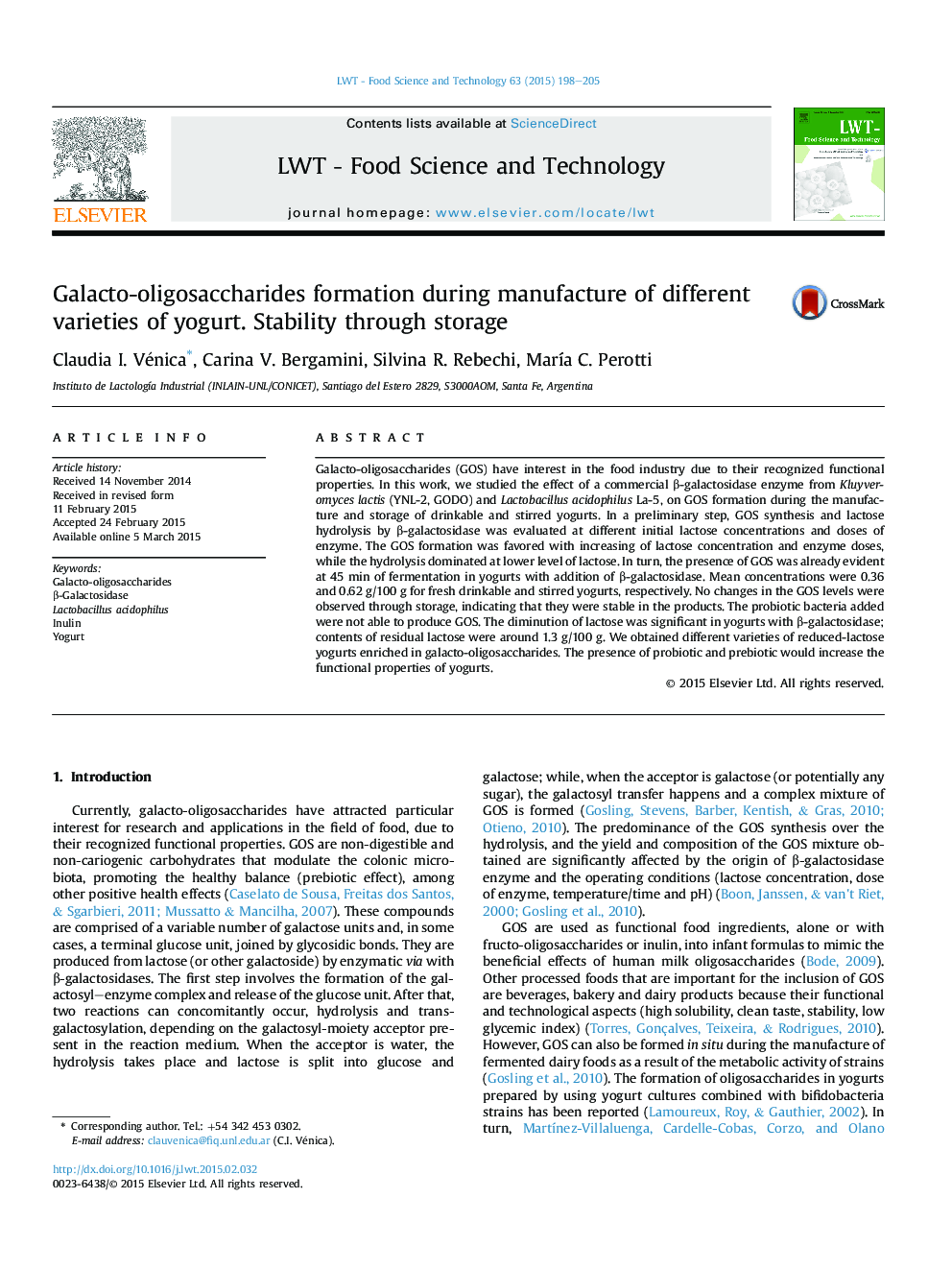| Article ID | Journal | Published Year | Pages | File Type |
|---|---|---|---|---|
| 6402018 | LWT - Food Science and Technology | 2015 | 8 Pages |
â¢Î²-galactosidase YNL-2 GODO can synthesize galacto-oligosaccharides (GOS) in lactose solution and yogurt.â¢Varieties of reduced-lactose yogurts enriched in GOS were obtained.â¢Small changes in quality parameters were produced in yogurts by enzyme and Lactobacillus acidophilus/inulin addition.â¢GOS formed were stable throughout the storage period of yogurts.â¢GOS contents were similar to that found in infant formulas and other dairy foods.
Galacto-oligosaccharides (GOS) have interest in the food industry due to their recognized functional properties. In this work, we studied the effect of a commercial β-galactosidase enzyme from Kluyveromyces lactis (YNL-2, GODO) and Lactobacillus acidophilus La-5, on GOS formation during the manufacture and storage of drinkable and stirred yogurts. In a preliminary step, GOS synthesis and lactose hydrolysis by β-galactosidase was evaluated at different initial lactose concentrations and doses of enzyme. The GOS formation was favored with increasing of lactose concentration and enzyme doses, while the hydrolysis dominated at lower level of lactose. In turn, the presence of GOS was already evident at 45 min of fermentation in yogurts with addition of β-galactosidase. Mean concentrations were 0.36 and 0.62 g/100 g for fresh drinkable and stirred yogurts, respectively. No changes in the GOS levels were observed through storage, indicating that they were stable in the products. The probiotic bacteria added were not able to produce GOS. The diminution of lactose was significant in yogurts with β-galactosidase; contents of residual lactose were around 1.3 g/100 g. We obtained different varieties of reduced-lactose yogurts enriched in galacto-oligosaccharides. The presence of probiotic and prebiotic would increase the functional properties of yogurts.
